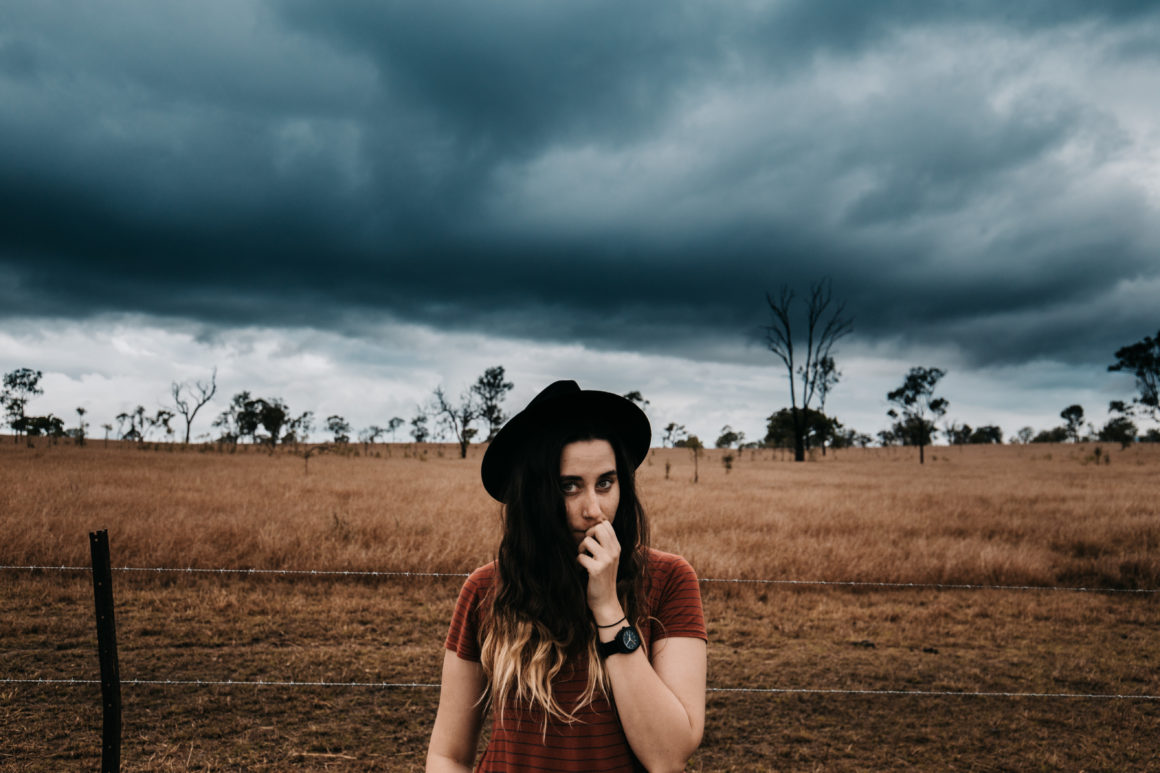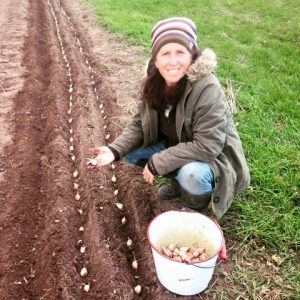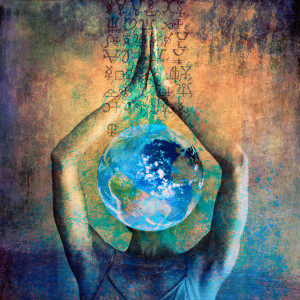When I lived in the city, I thought I knew what farming was like: hard work, pretty sunsets, living simple. And of course, there are those elements. But now that I make my life as a farmer, I know there’s so much more. It's the intensity of emotion that has amazed me, with its depth and breadth. I worry so fiercely about wolves now that it's almost like I live on a tundra. I obsessively check the weather, even more than a typical Midwesterner. When I'm outside, I listen for sounds of danger, as poised for action as a cat.
In the crisp darkness of this late-summer morning, for instance, I woke up terrified, thinking about wolves. I listened for our sheep, nestled only 50 feet away in their barn, the same structure that holds our chickens, ducks, and 10-week-old kitten. Silence. Was this a good sign or a bad one?
The day before, my partner Karla heard that a farmer only a few miles away lost some goats to timber wolves, and our farm is also along a heavily wooded tree line. So before we settled all our animals in for the night, I scanned the trees, as if I could tell whether anything was lurking there, but of course it was just pretty and bucolic, like always. I would need to wait, and hope, to see if all our predator protections would be enough.
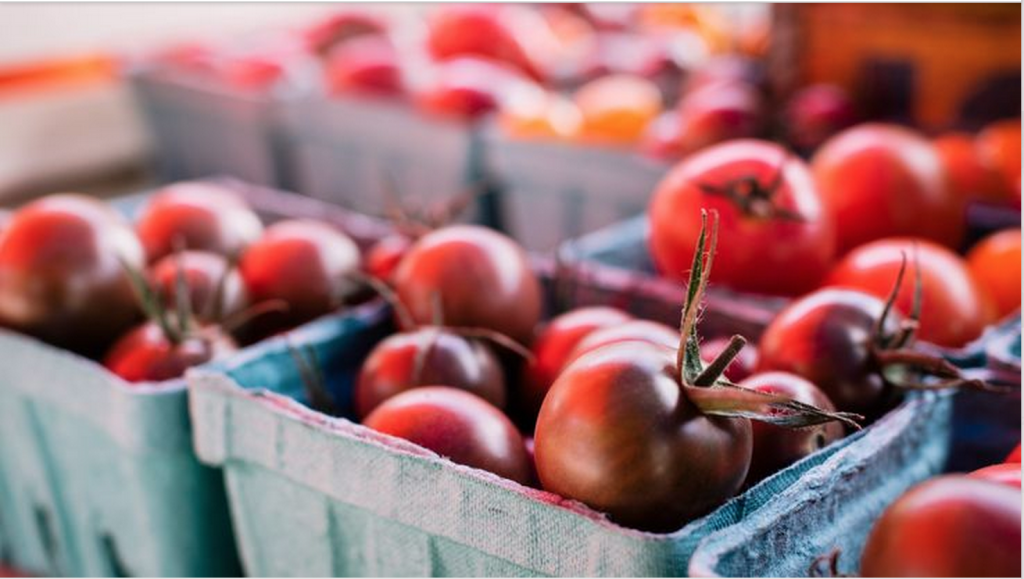 Then, the slow rumble of thunder began in the morning. I looked out over gorgeous fields of tomatoes and corn, luscious in the tints of dawn, and I wondered about hail and wind, those twin forces of destruction. We'd gotten a huge bowl of heirlooms the night before and ate bruschetta with our fresh basil until I nearly burst. But now I saw the half-ripe fruits heavy on the vines and fretted for them. So much could be lost with just one bad storm.
Then, the slow rumble of thunder began in the morning. I looked out over gorgeous fields of tomatoes and corn, luscious in the tints of dawn, and I wondered about hail and wind, those twin forces of destruction. We'd gotten a huge bowl of heirlooms the night before and ate bruschetta with our fresh basil until I nearly burst. But now I saw the half-ripe fruits heavy on the vines and fretted for them. So much could be lost with just one bad storm.
This is what it is to be a farmer.
Growing up in the western suburbs of Minneapolis, I never imagined that this would be my life. I was the kind of pretentious teen who subscribed to Vanity Fair at age 16 (yes, I still roll my eyes at that) and then bolted for the East Coast as soon as I could. Living in Boston, the only nature I saw were the trees and parks along the Charles River—which I enjoyed alongside the thousands of other people in the park every day. My view of a bucolic landscape was never without a discarded Dunkin’ Donuts cup.
After moving back to Minnesota, though, something changed, especially after I met Karla during a Habitat for Humanity trip to Zambia in 2009. The people living in the village where we stayed had next to nothing, and they were so welcoming and happy it was like something in my head broke. They lived a sustainable lifestyle not because it was a cool, back-to-the-land kind of thing, or a hipster obsession, but because that's the life that made sense to them.
So when Karla and I started a CSA farm in 2011, we were intent on bringing a chunk of Zambian perspective to our efforts. We treasured those lovely African memories, but quickly learned—holy shit!—that farming is hard. Intellectually, I knew it would be, but I was shocked by how fast it could break you down, psychologically and physically. I still remember the times when I had to pause between eight-hour stretches of planting so I could cry over my aching back, and then go back to work. There was sweetness, of course, and a deep contentment that comes with being outside every day, in any kind of weather. But farmers call July "the heart of darkness" for a reason.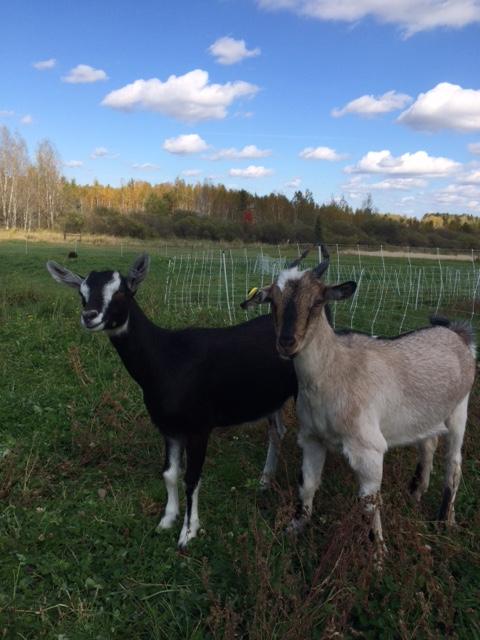
But then, just as quickly, everything can swing in the other direction. Karla walks over in her bee suit, holding out a comb that's dripping with our first taste of honey. We see that the winecap mushrooms we so carefully tended are now surging up from the woodchips that kept them cozy for months, and my thoughts spin off into how to preserve them and keep that flavor around until spring. The crazed sounds of the barn drape around me while I hold the kitten and feel her purr against my forearm as I look to see if our chickens have any more eggs for us today.
Farming is even more glorious than people imagine, and it's harder and sharper than most people think. This is a life that can break you with loss. Our dog discovers an escaped chicken and there's a snap—a neck, my heart. I look under a broad and glorious leaf and find that the cucumbers are finally ready for pickling and I grab the first one so happily with a snap—a stem, my heart.
I look at this landscape, with all its dark threats and eddies of potential grief, all its jumbled wildflowers and soft grasses, and I'm so grateful.
To farm, I must be here, listening, watching, staying aware. Being completely and utterly present and accepting of what comes, no matter how beautiful or terrible. This is what it is to be a farmer. And I can think of no better way to live, because this is the life that makes sense to me.

Finding Freedom: Healing the Patriarchal Wounds of My Indian Lineage
In this modern culture of individualism, it is precious and rare to meet individuals who have managed to break free from who they are taught

